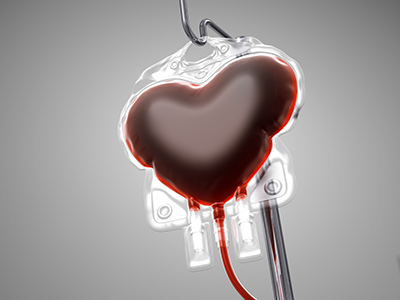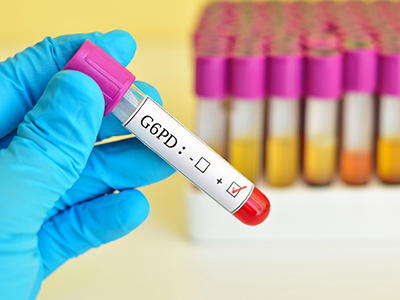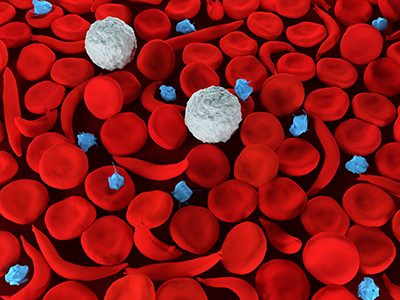G6PD deficiency is an inherited condition that occurs when the body doesn’t produce enough of an enzyme called glucose-6-phosphate dehydrogenase or G6PD. G6PD helps protect red blood cells from substances that can harm them. A lack or reduction of G6PD can cause red blood cells to break down which is called hemolysis. Hemolysis can lead to low hemoglobin (anemia) which can cause symptoms such tiredness and dizziness. The degree of hemolysis and anemia may vary among individuals depending on the severity of G6PD deficiency.
Who is at risk for G6PD deficiency?
G6PD deficiency is a genetic condition (X-linked disorder) that impacts males more severely. Women can be the carriers and pass it on to their children. G6PD deficiency is the most common enzymatic disorder of red blood cells, affecting 400 to 500 million people globally. In the United States if affects about 10% of African Americans. Multiple variants of G6PD deficiency exist, with some being more severe, such as Mediterranean variant compared to G6PD A– variant which is the most common variant in individuals of African ancestry.
What are some triggers for hemolysis in children with G6PD deficiency?
Most individuals do not have hemolysis or anemia. However, some triggers can cause the breakdown of red blood cells (hemolysis) in children with G6DP deficiency. These include:
- Illness, such as bacterial and viral infections
- Some painkillers and fever-lowering drugs
- Some antibiotics and other medicines containing sulfa
- Some antimalarial drugs such as quinine
- Fava beans (also called broad beans)
- Naphthalene (a chemical found in mothballs and moth crystals).
NOTE: Clinical trials and vaccine rollouts around the world have not identified any specific concerns regarding COVID-19 vaccines and people with G6PD deficiency. There is no evidence that a particular brand of COVID-19 vaccine is preferred for people with G6PD deficiency.
What are the symptoms of hemolytic anemia?
Symptoms of hemolytic anemia include:
- Tiredness
- Dizziness
- Pale skin
- Fast heartbeat
- Fast breathing/shortness of breath
- Yellowing of the skin, eyes and mouth (jaundice)
- Enlarged spleen
- Dark-colored urine
- Fever
- Weakness
How is G6PD deficiency diagnosed?
G6PD deficiency usually isn’t discovered until a child shows symptoms of the condition. If your child’s pediatrician suspects he or she has G6PD deficiency, they will order a blood test to confirm the diagnosis and rule out other causes of the symptoms.
How is G6PD deficiency treated?
In most cases, G6PD deficiency does not cause problems unless the child is exposed to medicines or foods that trigger hemolysis. Therefore, treatment for G6PD deficiency generally involves avoiding certain medicines, foods and environmental triggers such as aspirin, certain antibiotics, fava beans and moth balls. In some cases, antibiotics may be needed to treat infection, or a blood transfusion may be needed if anemia is very severe.
If your child has G6PD deficiency, check with your doctor for instructions and a list of medicines and other things that your child should avoid.
 https://riseandshine.childrensnational.org/wp-content/uploads/2020/02/Large-Group-of-People-Celebrating-feature.png
300
400
Rise and Shine
https://riseandshine.childrensnational.org/wp-content/uploads/2017/11/childrens_riseandshine_logo.jpg
Rise and Shine2024-02-27 07:00:312024-02-27 09:36:48Celebrate Rare Disease Day
https://riseandshine.childrensnational.org/wp-content/uploads/2020/02/Large-Group-of-People-Celebrating-feature.png
300
400
Rise and Shine
https://riseandshine.childrensnational.org/wp-content/uploads/2017/11/childrens_riseandshine_logo.jpg
Rise and Shine2024-02-27 07:00:312024-02-27 09:36:48Celebrate Rare Disease Day









Leave a Comment
Want to join the discussion?Feel free to contribute!